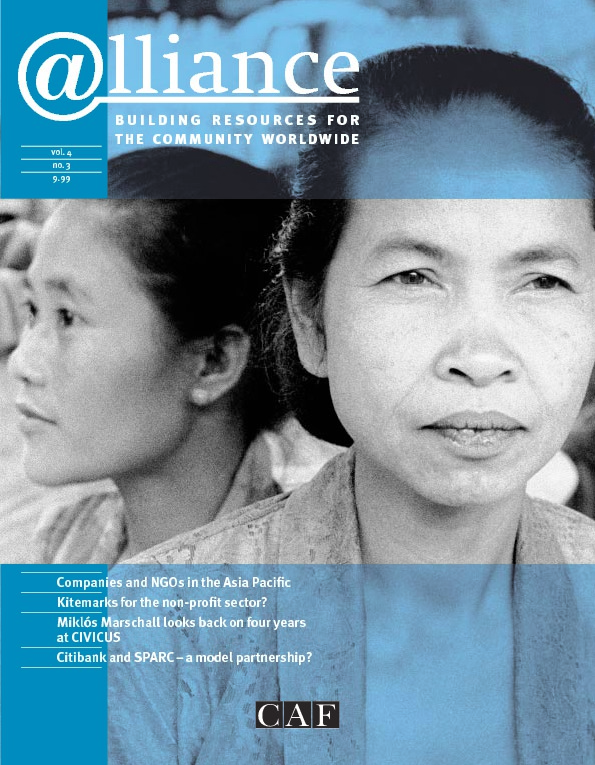Founded in December 1970 in response to the call for business to be involved in development, Philippine Business for Social Progress (PBSP) is now ‘one of the best examples in the world of a business-led partnership that is tackling the problems of poverty and unrest’.[1]
The early 1970s was a time of grave social unrest and political tensions in the Philippines. Widespread poverty and political insurgency in the countryside brought mass demonstrations to the capital. Big business, perceived to be concerned only with its own interests, became, together with government, a target of the public’s clamour for change.
Established as the contribution of Philippine business to development, PBSP’s aim was to pool the resources of business to help the poor help themselves. PBSP’s founders patterned the giving formula after a Venezuelan organization, the Dividendo Voluntario para la Comunidad. The first 50 member companies pledged a percentage of pre-tax income to social development as their annual contribution.
In addition, they committed themselves to be directly involved in the management of the organization. From the beginning, the Board worked closely with a professional staff and implemented development projects through partner NGOs.
PBSP today
PBSP is now one of the largest grant-making and project-implementing foundations in the Philippines. Since its establishment almost 29 years ago, it has channelled approximately 1.4 billion pesos (US$59 million) in support of 4,000 projects for the benefit of 2.2 million low-income households, mostly small farmers, fisherfolk and the urban poor. It has developed the capacities of over 2,000 partner NGOs, in the process training a generation of highly competent development leaders.
Since 1990, PBSP has also brokered financial resources of more than 2 billion pesos by directly linking donors to communities and NGOs. About 1.8 billion pesos of this has supported some 6,400 small and medium scale enterprises (SMEs) in the countryside, generating 47,250 full-time jobs.
Today, PBSP’s member companies number 173. Its programmes include:
Area Resource Management (ARM) This is PBSP’s core development strategy, involving an integrated area development approach wherein PBSP brings together government, business, NGOs, donor institutions and communities to create a greater impact in identified areas through the collaboration of different sectors. As the Philippines industrializes, PBSP is assisting traditional communities in rapidly urbanizing areas, ensuring that the marginalized sectors will participate in, and benefit from, the economic gains being made in the area.
Small and Medium Enterprise Credit The aim is to increase the available credit to SMEs outside Metro Manila. PBSP manages a US$12 million revolving fund provided to the Philippine Government by USAID and a DM14.75 million loan from a German development agency, the Kreditanstalt fur Wiederaufbau or KfW.
Governance and Local Democracy (GOLD) Program This USAID-funded programme aims to build the capacities of local government units in the Philippines to deliver social services.
Center for Corporate Citizenship This serves as a forum for business CEOs to engage in dialogue with their counterparts in government and civil society on the critical issues facing the country.
PBSP is now a major international player, working in partnership with regional and international institutions such as the Asia Pacific Philanthropy Consortium (APPC), the World Bank and the United Nations. PBSP was a co-founder of APPC in 1994, and has served on its Steering Committee since then.
The future
The challenges facing PBSP can only increase in the next millennium. With globalization, government’s role is diminished and the business sector must play a critical role in pushing for socioeconomic and environmental reforms both locally and internationally.
Rising to the challenge, PBSP is formulating a Corporate Involvement Program with the aim of redefining corporate social responsibility in the Philippine context and developing a common framework for Philippine business.
1 Quoted from Business as Partners in Development (World Bank, UNDP and the Prince of Wales Business Leaders Forum, 1996).
For further information about PBSP, contact director Roberto Calingo at BCalingo@pbsp.org.ph





Comments (0)